Husein Hadeiba, Ph.D.
Research
My research interests center on understanding how dendritic cells (DCs) regulate the immune response. Specifically we are interested in the role of DC trafficking in inflammation and in the maintenance of immune homeostasis and tolerance. To understand these processes, we are examining the mechanisms of DC homing to sites of immune tolerance such as (i) the thymus-the site of central tolerance, and (ii) the gut mucosa-where immune responses to commensal and ingested antigens (Ags) are shut down. We are also interested in understanding how microenvironmental tissue factors influence DC development and their ability to imprint unique homing properties on T cells. DCs are unique messenger white blood cells of the mammalian immune system. They function as specialized antigen-presenting cells (APCs), whose main function is to process and transport Ags and microenvironmental signals from the tissues to the draining lymph nodes for presentation to T cells. In the last decade, a large number of DC subsets have been characterized in part defined by their expression of unique trafficking and adhesion receptors, and migratory properties. We therefore would like to understand how these trafficking and adhesion receptors define their function and phenotype and how they are regulated by the tissue microenvironment, with the hope of targeting unique DC subsets to suppress chronic inflammation or to improve anti-tumor responses in immunotherapy.
People
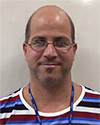
Husein Hadeiba, Ph.D.
Research Scientist/Principal Investigator
Palo Alto Veterans Institute for Research
Veterans Affairs Palo Alto Healthcare System
3801 Miranda Ave, Bldg 101, Rm. C4-111
Palo Alto, CA 94304
(650) 493-5000 ext. 6-3167
Fax (650) 858-3986
hadeiba@stanford.edu
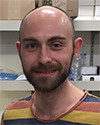
Denis Dermadi Bebek, Ph.D.
Postdoctoral fellow
Department of Pathology
School of Medicine, Stanford University
(650) 493-5000 ext. 6-3167
ddermadi@stanford.edu
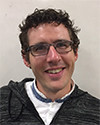
Romain Ballet
Postdoctoral fellow
Department of Pathology
School of Medicine, Stanford University
(650) 493-5000 ext. 6-3134
rballet@stanford.edu
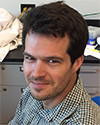
Michael Bschedier
Postdoctoral fellow
Department of Pathology
School of Medicine, Stanford University
(650) 493-5000 ext. 6-3134
mbscheid@stanford.edu
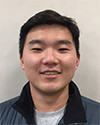
Jihun Yeo
Postgraduate research volunteer
Palo Alto Veterans Institute for Research
Veterans Affairs Palo Alto Healthcare System
3801 Miranda Ave, Bldg 101, Rm. C4-111
Palo Alto, CA 94304
(650) 493-5000 ext. 6-3167
jihun.yeo@gmail.com
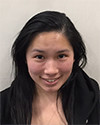
Phuong Dinh
Undergraduate research volunteer
Palo Alto Veterans Institute for Research
Veterans Affairs Palo Alto Healthcare System
3801 Miranda Ave, Bldg 101, Rm. C4-111
Palo Alto, CA 94304
(650) 493-5000 ext. 6-3167
pdinh@scu.edu
Publications
- Corry, D.B., G. Grunig, H. Hadeiba, V.P. Kurup, M.L. Warnock, D. Sheppard, D.M. Rennick, and R.M. Locksley. 1998. Requirements for allergen-induced airway hyperreactivity in T and B cell-deficient mice. Mol Med4:344-355.
- Hadeiba, H., D.B. Corry, and R.M. Locksley. 2000. Baseline airway hyperreactivity in A/J mice is not mediated by cells of the adaptive immune system. J Immunol164:4933-4940.
- Mohrs, M., C.M. Blankespoor, Z.E. Wang, G.G. Loots, V. Afzal, H. Hadeiba, K. Shinkai, E.M. Rubin, and R.M. Locksley. 2001. Deletion of a coordinate regulator of type 2 cytokine expression in mice. Nat Immunol2:842-847.
- Hadeiba, H., and R.M. Locksley. 2003. Lung CD25 CD4 regulatory T cells suppress type 2 immune responses but not bronchial hyperreactivity. J Immunol170:5502-5510.
- Hadeiba, H., T. Sato, A. Habtezion, C. Oderup, J. Pan, and E.C. Butcher. 2008. CCR9 expression defines tolerogenic plasmacytoid dendritic cells able to suppress acute graft-versus-host disease. Nat Immunol9:1253-1260.
- Hadeiba, H., K. Lahl, A. Edalati, C. Oderup, A. Habtezion, R. Pachynski, L. Nguyen, A. Ghodsi, S. Adler, and E.C. Butcher. 2012. Plasmacytoid dendritic cells transport peripheral antigens to the thymus to promote central tolerance. Immunity36:438-450.
- Pachynski, R.K., B.A. Zabel, H.E. Kohrt, N.M. Tejeda, J. Monnier, C.D. Swanson, A.K. Holzer, A.J. Gentles, G.V. Sperinde, A. Edalati, H.A. Hadeiba, A.A. Alizadeh, and E.C. Butcher. 2012. The chemoattractant chemerin suppresses melanoma by recruiting natural killer cell antitumor defenses. J Exp Med209:1427-1435.
- Hadeiba, H., and E.C. Butcher. 2013. Thymus-homing dendritic cells in central tolerance. Eur J Immunol43:1425-1429.
- Zeng, R., C. Oderup, R. Yuan, M. Lee, A. Habtezion, H. Hadeiba, and E.C. Butcher. 2013. Retinoic acid regulates the development of a gut-homing precursor for intestinal dendritic cells. Mucosal Immunol6:847-856.
- Watchmaker, P.B., K. Lahl, M. Lee, D. Baumjohann, J. Morton, S.J. Kim, R. Zeng, A. Dent, K.M. Ansel, B. Diamond, H. Hadeiba, and E.C. Butcher. 2014. Comparative transcriptional and functional profiling defines conserved programs of intestinal DC differentiation in humans and mice. Nat Immunol15:98-108.
- Habtezion, A., L.P. Nguyen, H. Hadeiba, and E.C. Butcher. 2015. Leukocyte trafficking to the Small Intestine and Colon.Gastroenterology
- Nguyen, L.P., J. Pan, T.T. Dinh, H. Hadeiba, E. O’Hara, 3rd, A. Ebtikar, A. Hertweck, M.R. Gokmen, G.M. Lord, R.G. Jenner, E.C. Butcher, and A. Habtezion. 2015. Role and species-specific expression of colon T cell homing receptor GPR15 in colitis. Nat Immunol16:207-213.
Contact
Husein Hadeiba, Ph.D.
Research Scientist/Principal Investigator
Palo Alto Veterans Institute for Research
Veterans Affairs Palo Alto Healthcare System
3801 Miranda Ave, Bldg 101, Rm. C4-111
Palo Alto, CA 94304
(650) 493-5000 ext. 6-3167
Fax (650) 858-3986
hadeiba@stanford.edu
Links
Palo Alto Veterans Institute for Research:
https://pavir.org
Department of Pathology, Stanford University:
http://pathology.stanford.edu/


